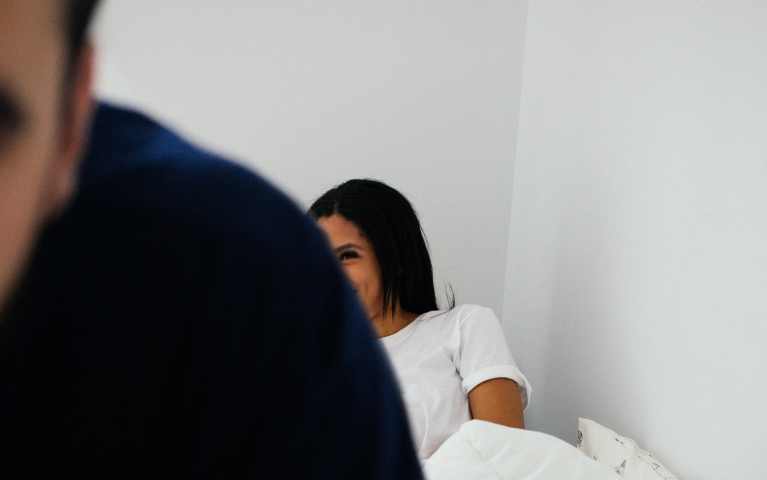Between 50 and 70 million Americans suffer from some form of sleep disturbance, according to the Centers for Disease Control.
And according to researchers, it's more of a problem for women.
The Centers for Disease Control's National Center for Health Statistics reports that women are more likely than men to have trouble falling asleep and staying asleep, and they more likely to say they don't feel well rested. That's especially true for single women who have children under the age of 18 living at home.
According to Dr. Victoria Sharma, a California physician affiliated with Sharp Grossmont Hospital who is board-certified in sleep medicine and neurology, most people need 7 to 8 hours of sleep each night to function optimally. That can vary from as little as 6 hours to as much as 10 hours, depending on the individual, she says. She sees more women than men suffering from insomnia.
The reasons for women's poor sleep vary. Women's hormones fluctuate throughout their reproductive cycle. Caring for young children who wake often can impact adult sleep cycles. And so can the wiring in a woman's brain, researchers have found.
Hormones
Hormones play a large part in women's sleep difficulties. Menstrual cycles, for example, can cause painful cramps and mood swings, as well as changes in the hormones that influence sleep. Pregnancy may aggravate sleep apnea and restless leg syndrome, increase the need for nighttime bathroom trips, and lead to general discomfort from a growing belly. Perimenopause can result in hot flashes and night sweats that interrupt sleep.
Our Brains
In addition to hormonal disturbances, researchers have found that women are more tired than men and need more sleep than men because their brains work differently.
Lead researcher Jim Horne, author of Sleepfaring: A Journey Through The Science of Sleep, told the Daily Mail that because women tend to multi-task, they use more of their brain than men and, as a result, require more sleep.
Internist Ernestine Wright of Mercy Medical Center in Baltimore agrees, observing, "On average, women need an additional 20 minutes more than men to regenerate."
Wright adds that poor sleep also affects women more than it does men, resulting in psychological distress, hostility, depression and anger.
Sleep deprivation can also result in lack of concentration, impaired cognitive function and a greater risk of accidents, says Sharma, adding that chronic sleep deprivation might also increase the risk of cardiovascular disease and stroke as well as contribute to obesity.
Want even better sleep? Sleepers who routinely use their Sleep Number smart bed features and SleepIQ® technology get almost 100 hours more proven quality sleep per year.*
Like diet and exercise, quality sleep is essential for optimal wellbeing and performance. Because everyone's sleep needs are different, Sleep Number® smart beds sense your movements and automatically adjust firmness, comfort and support to keep you both sleeping comfortably. Find your Sleep Number® setting for your best possible night's sleep, and if you own a Sleep Number® bed, log in to your Sleep Number® Rewards account to see your exclusive offers, refer friends and more.
*Based on internal analysis of sleep sessions assessing sleepers who use multiple features of Sleep Number® products. Claim based on sleepers achieving over 15 more minutes of restful sleep per sleep sessions.
ABOUT THE AUTHOR
Carol Sorgen is a full-time freelance writer based in Portland, Oregon. She covers a variety of topics including healthcare, lifestyle, travel, aging, the arts, architecture/design, life sciences, business, and education. Her articles have appeared in such publications as The Washington Post, Baltimore Sun, WebMD, Ocean Home, and Psychiatric News, to name a few.
